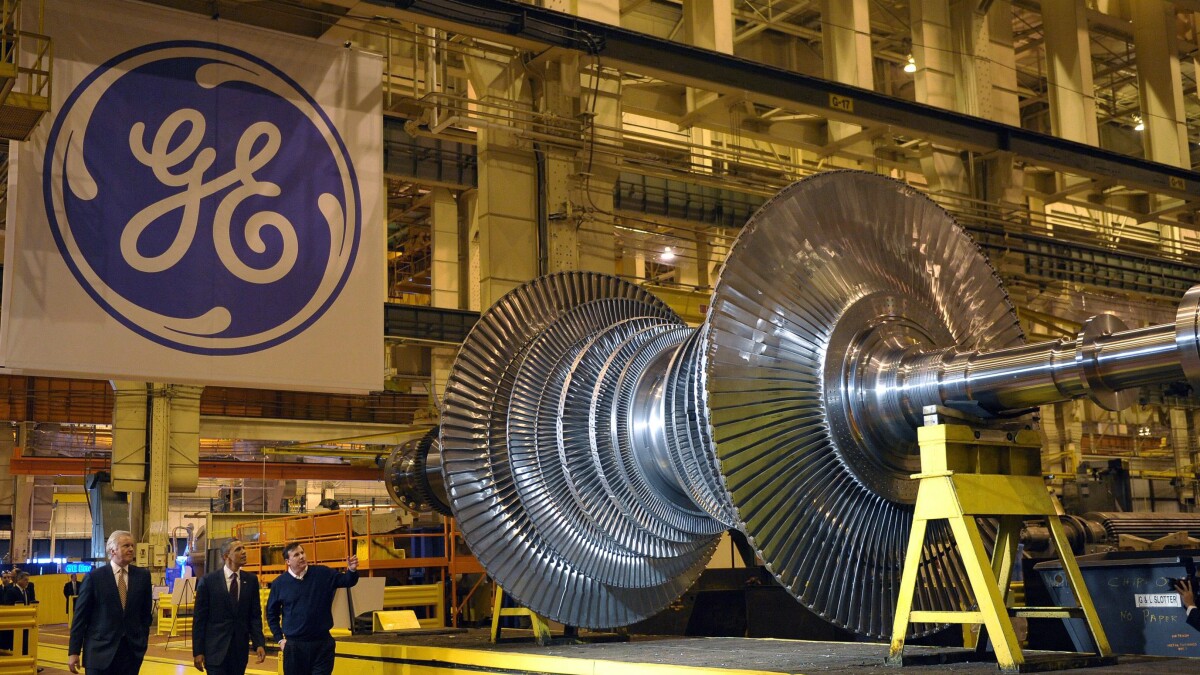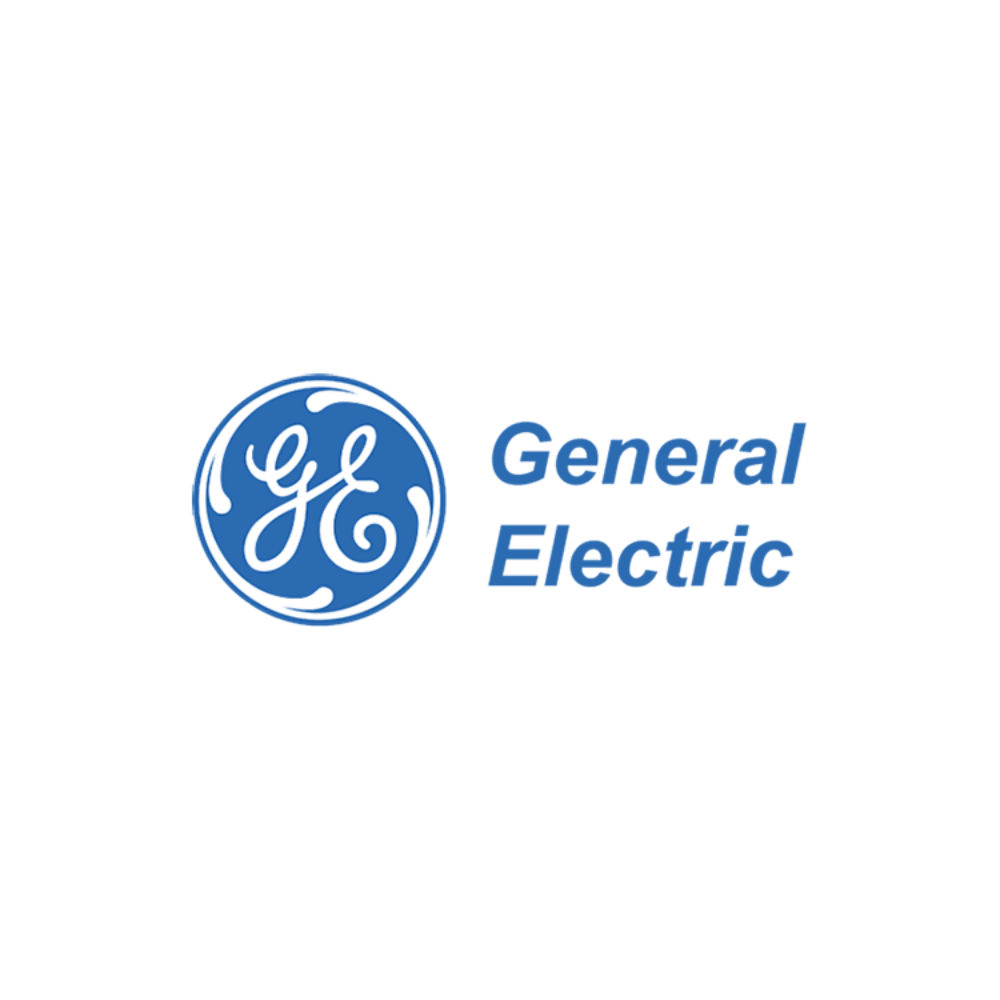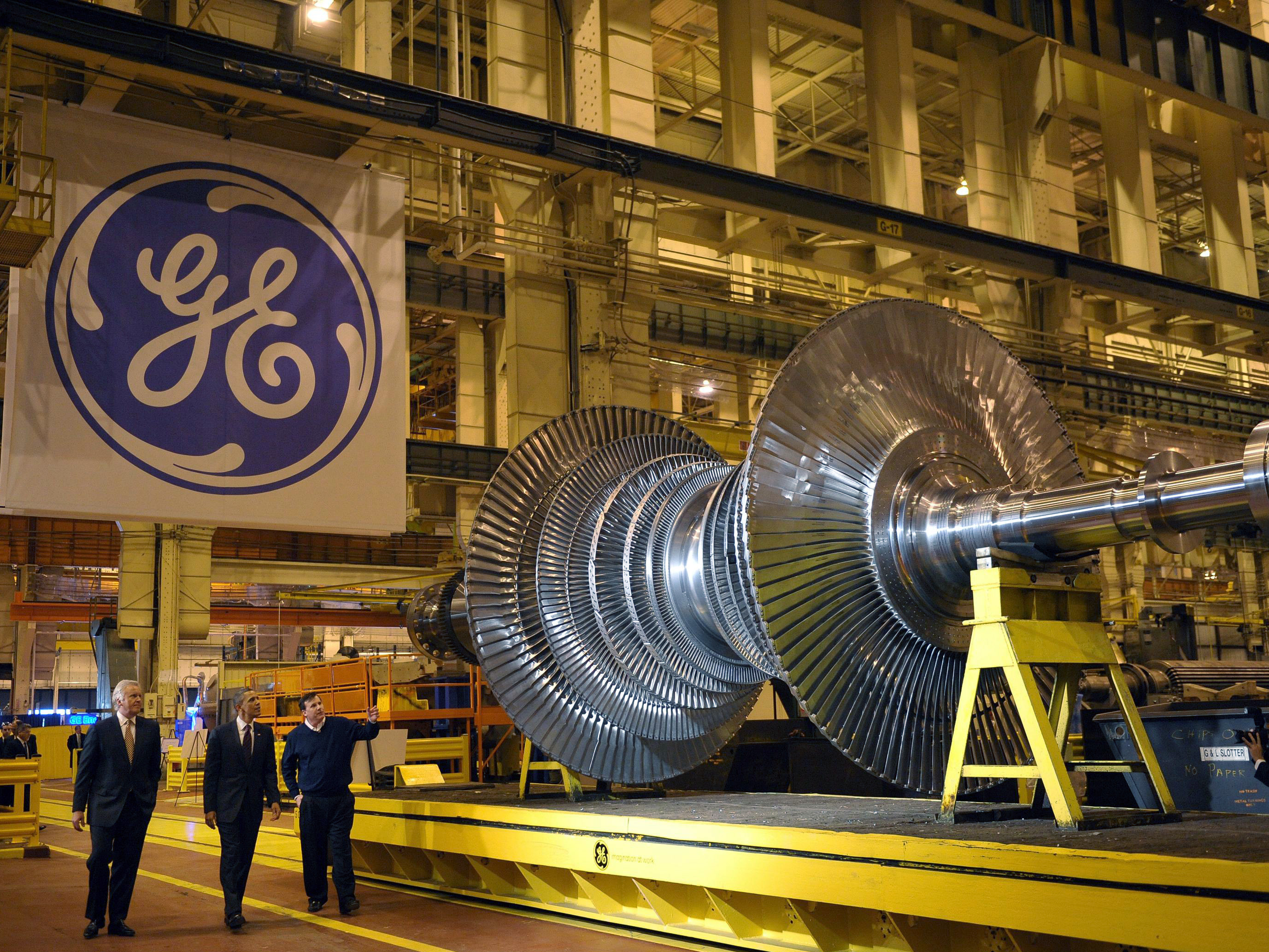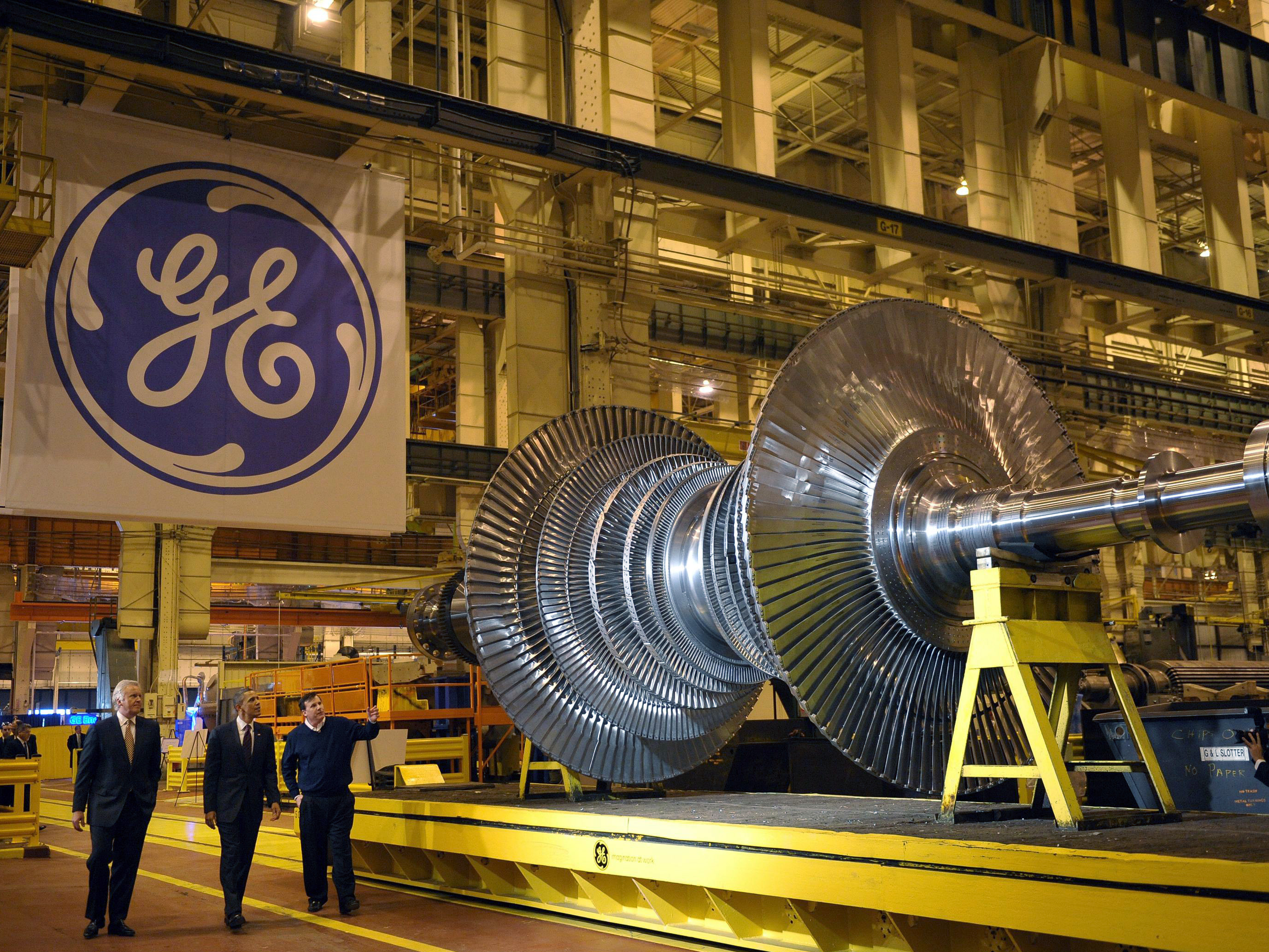General Electric’s Near Term Outlook

Analysts at Oppenheimer provided their near-term outlook on General Electric Company (NYSE:GE), lowering their Q1 EPS estimate to $0.20 from $0.41, but keeping their full-year estimates unchanged, in order to better account for comments on Renewables operating loss, skews mainly to H1, particularly to Q1.
The expected significant Q1 pressure reflects the specific backlog slated for delivery, with improving layers of pricing and project selection as the year advances and the company delivers from the more current Renewables backlog (plus, ramping operating and cost structure improvements).
As the company moves through a mixed near-term operating environment, with prospective enhancement through the year for Healthcare and Renewables, the Military outlook favors very robust H2 growth. This view is un-impacted by the prospective degree of global re-arming, and reflects strong alignment to growth platforms driving around 12–14% CAGR to 2025.
| Symbol | Price | %chg |
|---|---|---|
| RTX.BA | 52200 | -0.43 |
| LMT.BA | 35480 | -1.07 |
| 329180.KS | 528000 | -7.39 |
| 012450.KS | 950000 | -6.32 |

General Electric (NYSE:GE) Surpasses Earnings Expectations with Strong Aerospace Performance
- General Electric's [NYSE:GE] earnings per share (EPS) of $1.66 exceeded the estimated $1.46, showcasing robust operational efficiency.
- Revenue reached approximately $11.3 billion, surpassing expectations due to strong sales in the commercial-engines business.
- GE raised its full-year guidance, reflecting confidence in future performance driven by high demand for aerospace products.
General Electric (NYSE:GE) is a multinational conglomerate known for its diverse range of products and services, including aviation, healthcare, and renewable energy. GE Aerospace, a key division, focuses on manufacturing jet engines and other aerospace components. The company competes with other major players like Rolls-Royce and Pratt & Whitney in the aerospace industry.
On October 21, 2025, GE reported earnings per share (EPS) of $1.66, surpassing the estimated $1.46. This impressive performance was highlighted by Zacks, which noted the EPS exceeded their consensus estimate and marked a significant increase from the $1.15 per share reported in the same quarter last year. The strong earnings reflect GE's robust operational efficiency and market demand.
GE also achieved a revenue of approximately $11.3 billion, exceeding the estimated $10.4 billion. As highlighted by MarketWatch, this revenue surge was driven by strong sales and deliveries in its commercial-engines business. The increased demand for commercial engines and defense products contributed to the company's positive financial results.
Following the earnings report, GE's stock soared to record highs, as noted by Invezz. The company raised its full-year guidance for the second consecutive quarter, reflecting confidence in its future performance. This optimistic outlook is supported by the rising demand for GE's aerospace products, which continues to drive growth.
GE's financial metrics reveal a price-to-earnings (P/E) ratio of approximately 41.20, indicating investor confidence in the company's earnings potential. The price-to-sales ratio stands at about 7.48, while the enterprise value to sales ratio is around 7.24. GE's debt-to-equity ratio is relatively low at 0.11, suggesting a conservative approach to debt. The current ratio of 1.05 indicates a stable liquidity position, ensuring the company can meet its short-term obligations.

General Electric (NYSE:GE) Earnings Preview: What to Expect
- Earnings per share (EPS) of $1.46 and revenue of approximately $10.4 billion are expected for GE Aerospace's quarterly earnings.
- Historical data shows a 60% chance of a one-day gain in GE's stock following earnings announcements.
- GE's financial health is indicated by a P/E ratio of 41.29 and a debt-to-equity ratio of 0.99, suggesting investor confidence and a balanced financial position.
General Electric (NYSE:GE) is a multinational conglomerate known for its diverse operations, including aviation, healthcare, and power. GE Aerospace, a key division, is preparing to release its quarterly earnings on October 21, 2025. Analysts expect earnings per share (EPS) of $1.46 and revenue of approximately $10.4 billion, reflecting a positive outlook for the company.
Historically, GE's stock has reacted positively to earnings announcements, with a 60% chance of a one-day gain. The median positive movement is 5.1%, with the highest single-day gain reaching 8.3%. This trend suggests that traders might anticipate a favorable stock response if GE meets or exceeds expectations.
The consensus forecast for GE Aerospace's earnings report anticipates a 27% increase in EPS from the previous year, rising from $1.15 to $1.46. Revenue is expected to grow by 15.6%, from $8.94 billion to $10.34 billion. This growth is driven by strong demand for engines and solid defense orders, as highlighted by Zacks.
GE has consistently delivered better-than-expected results, with an average earnings surprise of 16.1% over the past four quarters. The company's Earnings ESP of 2.01% and a Zacks Rank of 3 suggest a high likelihood of another earnings beat. This could positively impact the stock price if actual earnings surpass expectations.
GE's financial metrics, such as a P/E ratio of 41.29 and a price-to-sales ratio of 7.65, indicate investor confidence in the company's earnings and sales potential. The debt-to-equity ratio of 0.99 and a current ratio of 1.04 suggest a balanced financial position, supporting GE's ability to meet its obligations and invest in growth opportunities.

General Electric's (GE) Impressive Financial Performance in Aerospace
- General Electric (NYSE:GE) reported earnings per share (EPS) of $1.49, surpassing estimates.
- GE Aerospace's revenue reached $9.94 billion, with a significant year-over-year decline but a notable EPS increase.
- The company reaffirmed its full-year guidance, projecting an adjusted EPS between $5.10 and $5.45.
General Electric (NYSE:GE) is a leading global company known for its diverse operations in sectors such as aviation, healthcare, and power. GE Aerospace, a key division, specializes in aviation and aerospace technologies, designing and manufacturing jet engines for commercial and military aircraft. The company competes with other major aerospace firms like Rolls-Royce and Pratt & Whitney.
On April 22, 2025, GE reported impressive financial results, with earnings per share (EPS) of $1.49, surpassing the estimated $1.27. This strong performance is attributed to GE Aerospace's robust commercial segments, despite ongoing supply chain challenges. The company's strategic initiatives to enhance product offerings and operational capabilities have played a crucial role in achieving these results.
GE Aerospace reported a revenue of $9.94 billion, exceeding the estimated $9.05 billion. Although there was a significant year-over-year revenue decline of 40.8%, the company managed to achieve an EPS of $1.49, a notable increase from the previous year's $0.82. This performance exceeded the Zacks Consensus Estimate, resulting in a revenue surprise of +0.31% and an EPS surprise of +18.25%.
Following the release of these results, GE Aerospace's shares saw an uptick in premarket trading. The company reaffirmed its full-year guidance, projecting adjusted EPS between $5.10 and $5.45. CEO Larry Culp emphasized strategic actions to control costs and utilize trade programs, with a commercial services backlog exceeding $140 billion, reinforcing confidence in maintaining the full-year guidance.
GE's financial metrics provide further insights into its market position. The company has a price-to-earnings (P/E) ratio of approximately 29.52, indicating investor confidence. Its price-to-sales ratio is about 5.12, and the enterprise value to sales ratio is around 4.86. With a low debt-to-equity ratio of 0.11, GE demonstrates a conservative use of debt, ensuring financial stability.

General Electric's (GE) Impressive Financial Performance in Aerospace
- General Electric (NYSE:GE) reported earnings per share (EPS) of $1.49, surpassing estimates.
- GE Aerospace's revenue reached $9.94 billion, with a significant year-over-year decline but a notable EPS increase.
- The company reaffirmed its full-year guidance, projecting an adjusted EPS between $5.10 and $5.45.
General Electric (NYSE:GE) is a leading global company known for its diverse operations in sectors such as aviation, healthcare, and power. GE Aerospace, a key division, specializes in aviation and aerospace technologies, designing and manufacturing jet engines for commercial and military aircraft. The company competes with other major aerospace firms like Rolls-Royce and Pratt & Whitney.
On April 22, 2025, GE reported impressive financial results, with earnings per share (EPS) of $1.49, surpassing the estimated $1.27. This strong performance is attributed to GE Aerospace's robust commercial segments, despite ongoing supply chain challenges. The company's strategic initiatives to enhance product offerings and operational capabilities have played a crucial role in achieving these results.
GE Aerospace reported a revenue of $9.94 billion, exceeding the estimated $9.05 billion. Although there was a significant year-over-year revenue decline of 40.8%, the company managed to achieve an EPS of $1.49, a notable increase from the previous year's $0.82. This performance exceeded the Zacks Consensus Estimate, resulting in a revenue surprise of +0.31% and an EPS surprise of +18.25%.
Following the release of these results, GE Aerospace's shares saw an uptick in premarket trading. The company reaffirmed its full-year guidance, projecting adjusted EPS between $5.10 and $5.45. CEO Larry Culp emphasized strategic actions to control costs and utilize trade programs, with a commercial services backlog exceeding $140 billion, reinforcing confidence in maintaining the full-year guidance.
GE's financial metrics provide further insights into its market position. The company has a price-to-earnings (P/E) ratio of approximately 29.52, indicating investor confidence. Its price-to-sales ratio is about 5.12, and the enterprise value to sales ratio is around 4.86. With a low debt-to-equity ratio of 0.11, GE demonstrates a conservative use of debt, ensuring financial stability.

General Electric (NYSE:GE) Maintains Strong Position in Aerospace with Bernstein's "Outperform" Rating
- Bernstein raises the price target for General Electric (NYSE:GE) Aerospace from $232 to $250, highlighting the division's recent achievements and technological prowess.
- GE Aerospace secures a significant contract with Korean Air for GEnx and GE9X engines, reinforcing its market position and showcasing its engineering excellence.
- Despite a slight decrease in stock price, GE's market presence remains dynamic, with a current trading price of $205.88 and a market capitalization of around $220.97 billion.
General Electric (NYSE:GE) is a multinational conglomerate known for its diverse operations, including aviation, healthcare, and power. GE Aerospace, a key division, focuses on manufacturing jet engines and providing related services. The company competes with other aerospace giants like Rolls-Royce and Pratt & Whitney. Recently, Bernstein maintained an "Outperform" rating for GE, with the stock priced at $205.88.
Bernstein's decision to raise the price target for GE Aerospace from $232 to $250 is supported by the division's recent achievements. GE Aerospace secured a major contract with Korean Air to supply GEnx and GE9X engines for their Boeing 787-10 and 777-9 aircraft. This deal strengthens GE's position in the aerospace market and highlights its technological prowess.
The GEnx engine family, with over 62 million flight hours, is a testament to GE's engineering excellence. With more than 3,600 engines in service or on backlog, the GEnx engine powers two-thirds of all Boeing 787 aircraft. The GE9X engine, chosen by Korean Air, offers a 10% improvement in fuel efficiency over its predecessor, enhancing the airline's operational efficiency.
Korean Air's decision to select GE Aerospace engines underscores the strong partnership between the two companies. The order includes a service agreement for maintenance, repair, and overhaul of the GE9X engines, marking a first in South Korea. This collaboration aligns with Korean Air's vision of fleet expansion and excellence, as highlighted by Walter Cho, Chairman and CEO of Korean Air.
Despite the positive developments, GE's stock price has seen a slight decrease of $1.49, or approximately -0.72%, currently trading at $205.88. The stock has fluctuated between $202.80 and $207.69 today, with a market capitalization of around $220.97 billion. Over the past year, GE's stock has ranged from a low of $133.99 to a high of $214.21, reflecting its dynamic market presence.

General Electric (NYSE:GE) Maintains Strong Position in Aerospace with Bernstein's "Outperform" Rating
- Bernstein raises the price target for General Electric (NYSE:GE) Aerospace from $232 to $250, highlighting the division's recent achievements and technological prowess.
- GE Aerospace secures a significant contract with Korean Air for GEnx and GE9X engines, reinforcing its market position and showcasing its engineering excellence.
- Despite a slight decrease in stock price, GE's market presence remains dynamic, with a current trading price of $205.88 and a market capitalization of around $220.97 billion.
General Electric (NYSE:GE) is a multinational conglomerate known for its diverse operations, including aviation, healthcare, and power. GE Aerospace, a key division, focuses on manufacturing jet engines and providing related services. The company competes with other aerospace giants like Rolls-Royce and Pratt & Whitney. Recently, Bernstein maintained an "Outperform" rating for GE, with the stock priced at $205.88.
Bernstein's decision to raise the price target for GE Aerospace from $232 to $250 is supported by the division's recent achievements. GE Aerospace secured a major contract with Korean Air to supply GEnx and GE9X engines for their Boeing 787-10 and 777-9 aircraft. This deal strengthens GE's position in the aerospace market and highlights its technological prowess.
The GEnx engine family, with over 62 million flight hours, is a testament to GE's engineering excellence. With more than 3,600 engines in service or on backlog, the GEnx engine powers two-thirds of all Boeing 787 aircraft. The GE9X engine, chosen by Korean Air, offers a 10% improvement in fuel efficiency over its predecessor, enhancing the airline's operational efficiency.
Korean Air's decision to select GE Aerospace engines underscores the strong partnership between the two companies. The order includes a service agreement for maintenance, repair, and overhaul of the GE9X engines, marking a first in South Korea. This collaboration aligns with Korean Air's vision of fleet expansion and excellence, as highlighted by Walter Cho, Chairman and CEO of Korean Air.
Despite the positive developments, GE's stock price has seen a slight decrease of $1.49, or approximately -0.72%, currently trading at $205.88. The stock has fluctuated between $202.80 and $207.69 today, with a market capitalization of around $220.97 billion. Over the past year, GE's stock has ranged from a low of $133.99 to a high of $214.21, reflecting its dynamic market presence.

General Electric (NYSE:GE) Maintains Strong Position in Aerospace with UBS "Buy" Rating
- UBS maintains a "Buy" rating for General Electric (NYSE:GE), increasing the price target for GE Aerospace from $215 to $235.
- GE Aerospace shares experience a breakout from a flag pattern, indicating a potential continuation of the upward trend with a projected price target of $335.
- The company anticipates low-double-digit adjusted revenue growth for 2025, driven by strong demand across its key divisions.
General Electric (NYSE:GE) is a multinational conglomerate known for its diverse range of products and services, including aviation, power, renewable energy, and healthcare. GE Aerospace, a key division, focuses on commercial engines, services, defense, and propulsion units. The company competes with other aerospace giants like Boeing and Rolls-Royce.
On January 24, 2025, UBS maintained its "Buy" rating for GE, with the stock priced at $200.80. UBS also increased the price target for GE Aerospace from $215 to $235. This decision aligns with the recent surge in GE Aerospace shares, driven by impressive fourth-quarter results and a positive revenue outlook.
GE Aerospace shares recently broke out from a flag pattern, a technical chart formation indicating a continuation of the upward trend. Analysts project a price target of approximately $335, suggesting the current uptrend may persist until December. Investors should monitor key support levels around $170 and $150.
The company anticipates low-double-digit adjusted revenue growth for 2025, following a 10% increase last year. This growth is attributed to strong demand in its commercial engines, services, defense, and propulsion units. GE Aerospace shares rose by 6.6% due to these developments.
Currently, GE's stock is priced at $200.80, reflecting a 6.60% increase or $12.44. The stock has fluctuated between $198.10 and $207.65 today, with $207.65 marking its highest price over the past year. GE's market capitalization stands at approximately $217.32 billion, with a trading volume of 14,328,980 shares.







